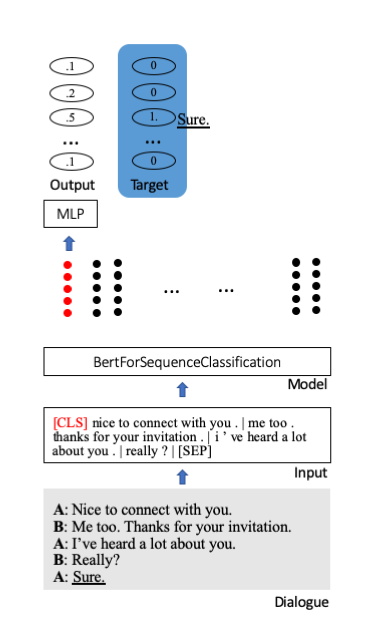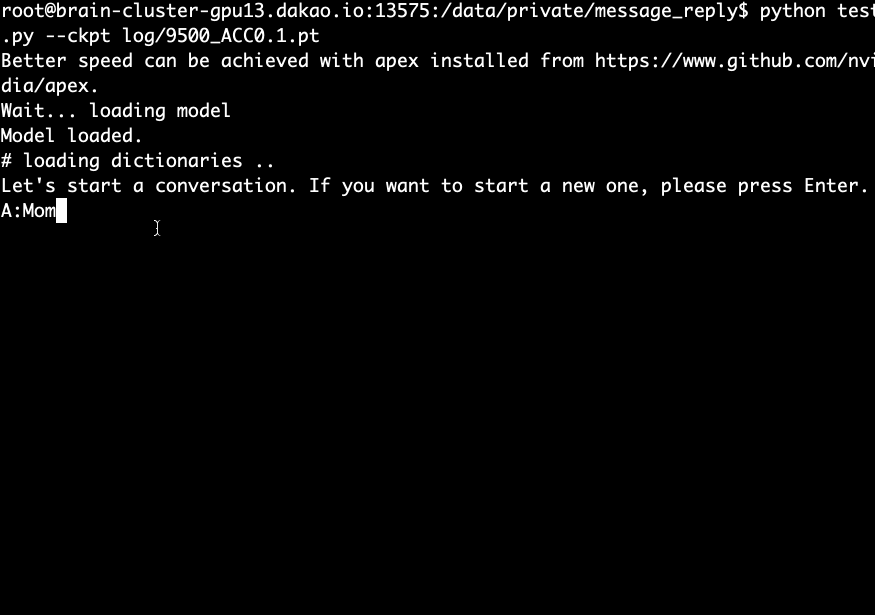Have you ever seen or used Google Smart Reply? It's a service that provides automatic reply suggestions for user messages. See below.
This is a useful application of the retrieval based chatbot. Think about it. How many times do we text a message like thx, hey, or see you later? In this project, we build a simple message reply suggestion system.
Kyubyong Park
Code-review by Yj Choe
We need to set the list of suggestions to show. Naturally, frequency is considered first. But what about those phrases that are similar in meaning? For example, should thank you so much and thxbe treated independently? We don't think so. We want to group them and save our slots. How? We make use of a parallel corpus. Both thank you so much and thx are likely to be translated into the same text. Based on this assumption, we construct English synonym groups that share the same translation.
We fine-tune huggingface's the Bert pretrained model for sequence classification. In it, a special starting token [CLS] stores the entire information of a sentence. Extra layers are attached to project the condensed information to classification units (here 100).

We use OpenSubtitles 2018 Spanish-English parallel corpus to construct synonym groups. OpenSubtitles is a large collection of translated movie subtitles. The en-es data consists of more than 61M aligned lines.
Ideally, a (very) large dialog corpus is needed for training, which we failed to find. We use the Cornell Movie Dialogue Corpus, instead. It's composed of 83,097 dialogues or 304,713 lines.
python>=3.6
tqdm>=4.30.0
pytorch>=1.0
pytorch_pretrained_bert>=0.6.1
nltk>=3.4
STEP 0. Download OpenSubtitles 2018 Spanish-English Parallel data.
bash download.sh
STEP 1. Construct synonym groups from the corpus.
python construct_sg.py
STEP 2. Make phr2sg_id and sg_id2phr dictionaries.
python make_phr2sg_id.py
STEP 3. Convert a monolingual English text to ids.
python encode.py
STEP 4. Create training data and save them as pickle.
python prepro.py
STEP 5. Train.
python train.py

Download and extract the pre-trained model and run the following command.
python test.py --ckpt log/9500_ACC0.1.pt
Training loss slowly but steadily decreases.
Accuracy@5 on the evaluation data is from 10 to 20 percent.
For real application, a much much larger corpus is needed.
Not sure how much movie scripts are similar to message dialogues.
A better strategy for constructing synonym groups is necessary.
A retrieval-based chatbot is a realistic application as it is safter and easier than generation-based one.